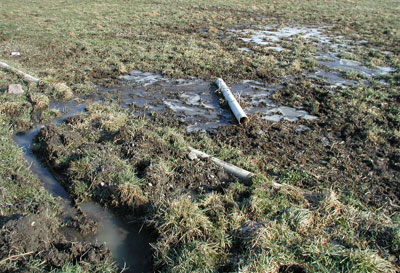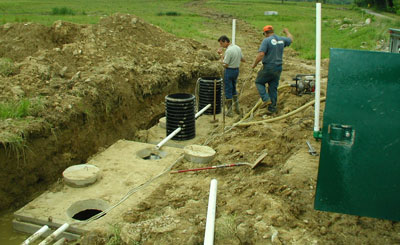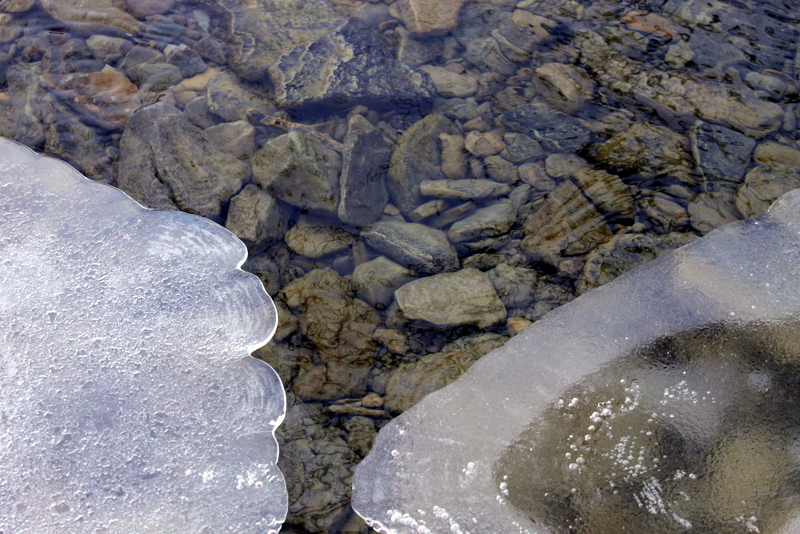Milkhouse Waste Irrigation System
The average dairy farm in Crawford County produces nearly 100,000 gallons of milkhouse wash water per year. The detergents, milk, milk fat, water, and mud/manure is often piped to the nearest stream or ditch. This is detrimental to the stream because it adds nutrients, lowers oxygen levels, and stresses aquatic organisms. Water quality can be improved by the proper treating of wastewater before it enters a stream.

BEFORE: Here is an example of untreated milkhouse waste entering a field.
How is it addressed?
There are a couple ways of properly dealing with milkhouse waste:
- Wash water can be treated using two septic tanks. The first tank settles out solids and must be periodically pumped. The second tank stores liquid waste that can be pumped into a manure spreader through a vertical pipe and applied to fields (in accordance with the farmers approved nutrient management plan).
- Another way to deal with wash water is a spray irrigation system. The water is pumped to a sprinkler head and is then sprayed on a pasture or field away from any waterways. The surrounding vegetation will filter the water before it has a chance to reach a waterway.

AFTER: Septic tanks are put in place to hold onto wash water until it is pumped to a spray irrigation head.
Approximate Cost = $8,000 per system
The result is:
- Improved surface & groundwater quality
- Improved herd health

